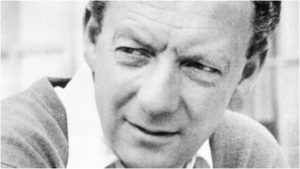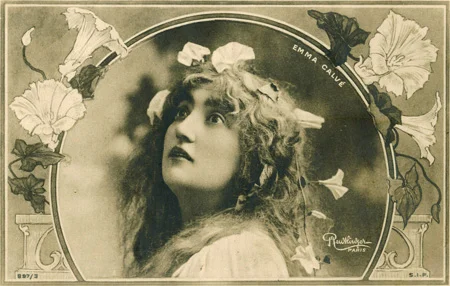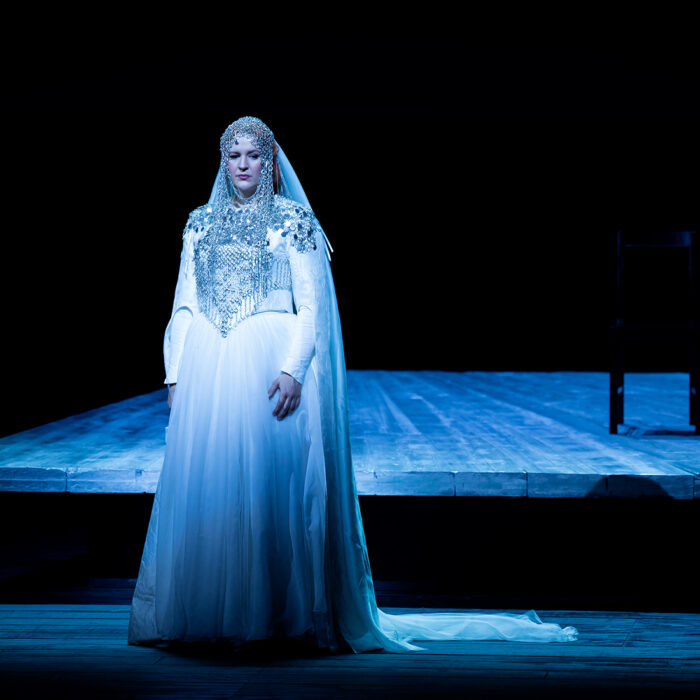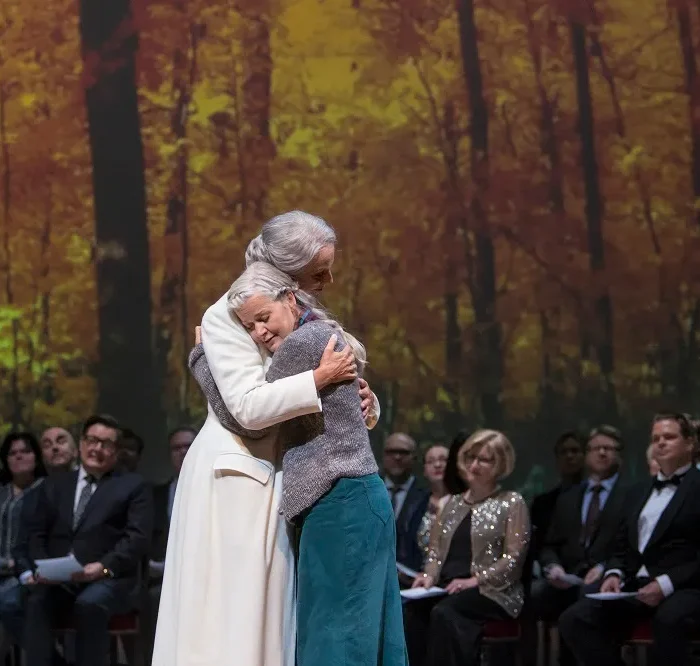
‘Death in Venice’ (in San Francisco) – One of OperaWire’s Writers Remembers Britten Opera Production From a Unique Perspective
By Lois SilversteinSan Francisco’s spring opera production of “Death in Venice” in 1975 was the real deal—the ingenious novella of German writer, Thomas Mann, turned into a haunting and exquisite opera by the English composer Benjamin Britten, libretto by Mfanwy Piper.
The production was created by the remarkable Gerald Freedman, a well-known American theater and opera director, assistant not only to New York’s renowned conductor of early music, Julius Rudel, but also to Joseph Papp of New York ‘s Shakespeare in the Park. He also served as an assistant to Jerome Robbins for the first “West Side Story” in the 1960s, and went on to direct the original Off-Broadway production of “Hair.”
To audition as a Super for the run of performances at San Francisco’s Curran Theater crossed my mind. To be directed by such a multi-talented artist would be a privilege as well as an excellent learning experience. So, I decided in favor of doing it and bicycled down to the theater district on Geary Street. For a short time, I would be able to live “inside” a story that had long colored my life.
This is the opera’s story: Gustav Aschenbach—a well-known, aging writer—flees his native Germany to go to Italy, to Venice, to kindle fading creative forces within him, and also to assure himself that his life as both a man and an artist still has meaning. At the hotel, he is taken by a young Polish boy, Tadzio, staying there with his family. He begins to passionately yearn for him. Indeed, the passion becomes Aschenbach’s solution for “what ails him.”
Caught in the city that becomes the site of a growing cholera epidemic, Aschenbach also becomes caught in the moral and existential aspects of the conflict, then and after. Routine has been his life. Work has been his life—order, discipline, restraint. Then, here, amidst a city sinking into an epidemic the city officials choose to keep secret, he becomes entangled with its dark heart. What will become of him? What does it say about him? How does it reflect and refract all that is diseased and decadent in the world around him? This is the core of the story and the opera.
As a young writer and a young mother, fresh with new life hanging over me, I found myself moved by the world around me—San Francisco, art, romance, poetry. Things challenged me in new ways, and trying to handle those challenges amidst the current attitudes toward working mothers proved even more difficult. Although a minor cast performer in this opera, I was a real person entrenched in a make-believe world of real issues—life, lust, sickness, death.
Gerald Freedman was a master—not only a brilliant director but an artist with a terrific eye. He watched. He saw. He sculpted Mann’s story through light and dark flats, minimal scenery, and Britten’s penetrating score, complete with major roles sung by tenor Ken Remo, and baritone Ronald Hedlund, playing multiple characters and danced by blond, curly-haired, Glen Hasstedt. The young John Mauceri conducted a full orchestral compliment that made sure to convey long low waves onto the sand and the sultry spill of languorous canals. Quasi-Wagnerian leitmotifs kept the tension alive as the disease spread from alley to small alley and Aschenbach drew us into his net of anguish.
“My mind beats on and no words come,” he sang, his voice repetitive, chilling, a haunting drone. “Taxing, tiring…unyielding, unproductive,” he lamented. While he fled away to Venice to do away with fading artistic powers, there he had to engage with different versions of it in every single scene—on the Lido, at the Hotel Barber, with the Strawberry Seller, the Gondolier. From his very first attraction to Tadzio, through the mechanics of trying to get close to him, he entered a contest of wills.
Enter a nameless group of people, and my small contribution. While Freedman set the stage with a sole beach chair in which Aschenbach could sit and ponder these issues when he wasn’t wandering around the city, he created a train of shadow people—five of them—of whom I was one.
This “train” served as a commentary on the main action. He had us dressed in dark coats, skirts and jackets, pants and hats, all in black or grey. He had our faces painted with thick grey. He directed us to move in a silent and steady progression along with the musical duets and trios on the stage, and he hung the multiple scrims across it at intervals. The intertwining rhythmic arcs we made through half-reality, half-hallucination. Around With Aschenbach installed in his beach chair, stage left, Tadzio and his playmates romping in and out of the “sea” upstage center and back, we wove our thread into an evolving carpet, which told the story of life, and this human’s imprisonment within it.
Night after night, I dissolved into Britten’s extraordinary twisting instrumentation—its alternating rhythms, seductive and agitated – and its lights turning from mauve to deep violet, red and royal purple. I watched Aschenbach watch the beautiful boy, and I watched Tadzio, who, after substantial oblivion, began to notice the man staring at him, and ever so slightly began to flirt with him.
“So, my little beauty, you notice when you’re noticed.” Age and youth, December and May, the Dionysian and the Apollonian. Aschenbach was for once smoldering with feeling alone, and not confining himself to the intellectual fence. “Don’t smile like that; no one should be smiled at like that.” The refrain twined through the scent of the sirocco, the sweet smell of sickness and death, all the warning signs the creators of the opera wanted us to feel: Death is ever close at hand.
Opening night, my small son was in the audience. He came with his father to get some idea what his mother was running from home every night to do. But just as the curtain rose, I panicked: what if he calls out “Mama” the minute he saw me in my black cloak and hat, my trailing skirt, my grey face paint, walking in our somber, repetitive procession? Would he take away from the opera some awful fear of death and sickness, of tormented passion and love?
Freedman did not engage our group in analysis of our role, or discussion of motivation or intensity for us to rehearse. We were to perform as chess pieces among others, rooks, pawns, and knights, acting out a dumb show. We were like a vine of neutrality amid the sordid action, self-hood gone, ordinary life subordinated to the theme of “beware and pay attention.”
We were to move as a single strip of nameless characters but neither as décor nor death figures, but as “voices” which, through the notes of Britten’s genius, were to blend with a modified Kyrie Elyison to ensure the audience remembered the life and death stakes even as Aschenbach did. Freedman wove the dark side like silver between the bright beach jewels. With the subdued but penetrating score—including clarinet, harp, piano, trombone, and aptly sour violins—Aschenbach wandered through Venice’s graveyard, past the salons, past the elderly fop, the fearful mothers, gradually becoming more than aware that his art and his life were over. “I am at an end,” he cried out, desperate and terrified.
To play a part of this train of mourners, fates, chorus, inspired me to play the role of observer throughout the months of the opera as well as participant in the action. Freedman took no detour in slicing the production this way: golden boy, demonic disease, straining mannequin that the painted writer becomes in service to his need. What is life? What is our destiny? Freedman plus Britten plus Mann—the whole metaphysical dimension was built by the genius of the creators.
As for my six-year-old son up in the Second Balcony whom I so wanted to enjoy the music, the color, the movement of life of a magical realm that grew as I was living it, what could he possibly make of all of it? This was not “Tales of Hoffmann” or “The Magic Flute.”
I rode my bicycle up Fell Street after the curtain came down. There, a thought occurred: on another night, at the War Memorial Opera House, I had “introduced” my son to the magic of Beverly Sills. Then, he laughed and smiled. The music was bright. He’d skipped down the aisle afterward. Tonight I’d brought him to face the other side of life questions. No doubt one day I would want to talk to my boy about such things.
Could there be any better introduction? Such music, such words, such ideas. As I sped over and up Stanyan Street, as his new mother, could such an event be considered as an integral part of child-rearing, dipping into such a statement about life far better than any of my attempts to respond to those inevitable questions? After all, what else were Mann, Britten, and Freedman doing, if not answering those questions in a superb, aesthetic and deeply human way?
Categories
Special Features

